5 brilliant modular gadgets that aren't the LG G5
All of the mod, none of the cons
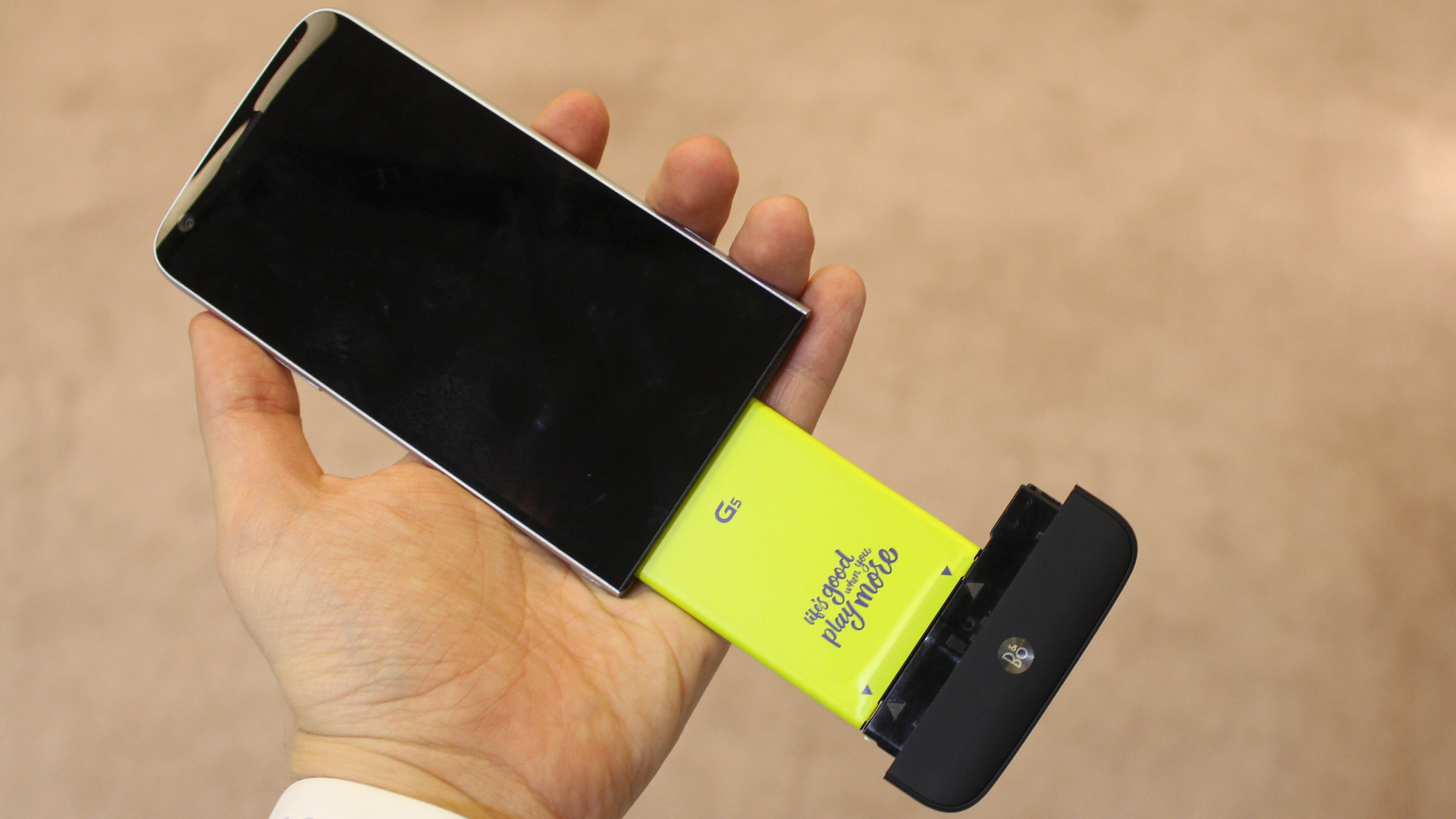
Introduction
Stealing whatever thunder Google's Project Ara had left, the LG G5 has been grabbing headlines over at MWC 2016 on the back of its modular functionality.
By sliding out a cartridge-like base, the smartphone lets you bolt add-ons to the smartphone - such as a battery grip with physical camera controls and a Hi-Fi audio module.
If like us you've suddenly rediscovered your modular mojo, here are five devices from the world of computing that took a similarly configurable approach. How Lego can you go?
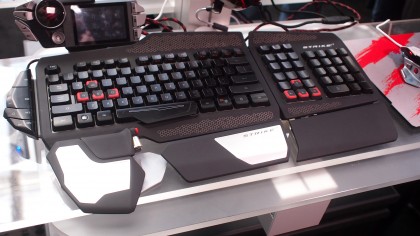
1. Mad Catz Cyborg STRIKE 7
Before mechanical keyboards enjoyed their (still ongoing) resurrection, gaming keyboards with LCD screens and more macro buttons than you could shake a stick at were cool. (Logitech's G15 was a personal favourite of mine.)
Taking a similar approach while throwing a dollop of modularity into the mix, the Mad Catz Strike 7 was unveiled in 2012 as a highly customizable gaming keyboard. It was something of a Frankenstein unit, complete with seven removable modules including a top-mounted LCD display, numeric keypad, 24-button macro strip and palm and wrist rests.
Undoubtedly ambitious and sporting RGB-backlit keys long before your gaming accessories lit up like a Christmas tree, the Strike 7 took the "less is more" attitude and reversed it. Gnarly.
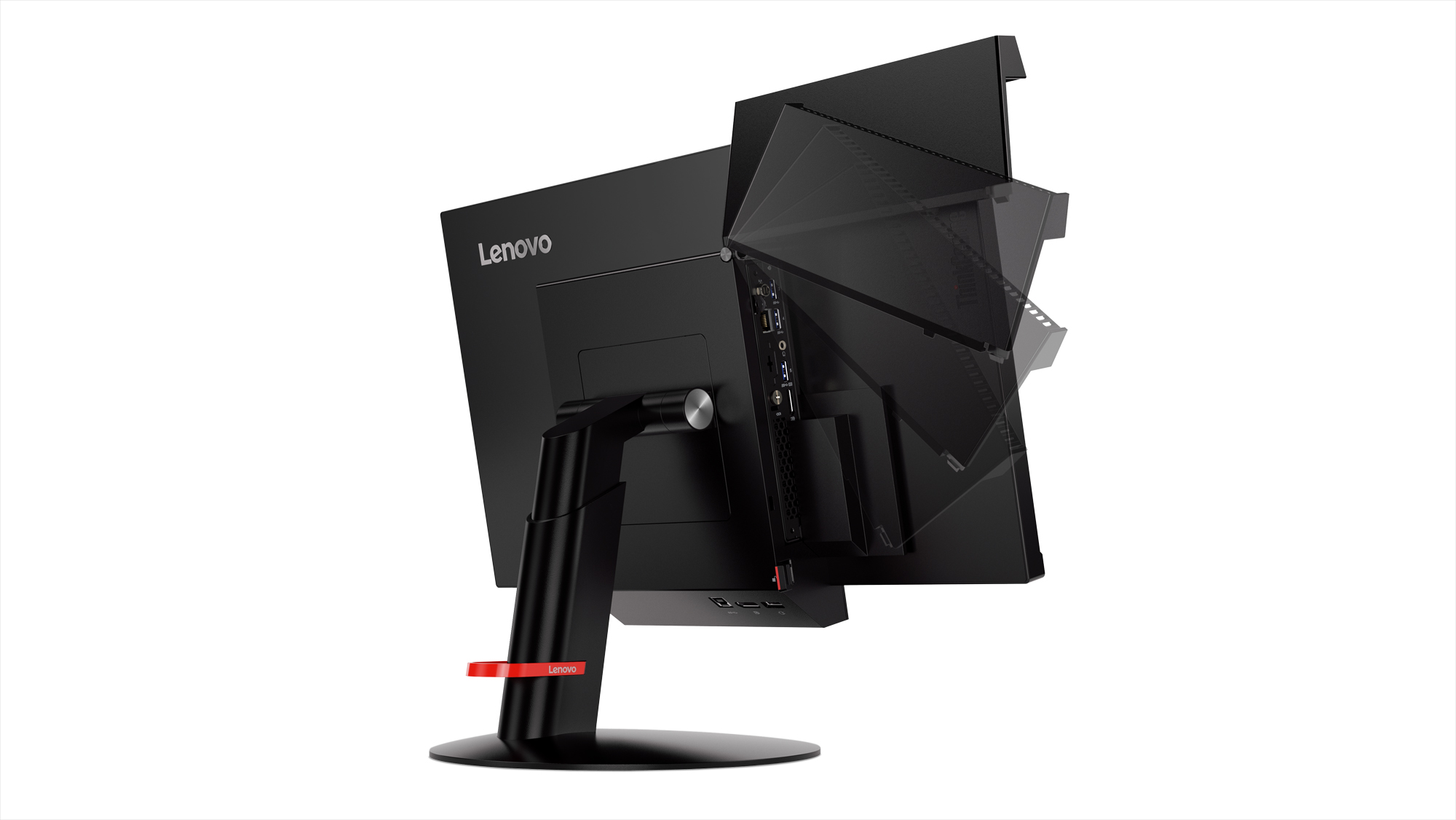
2. Lenovo ThinkVision X24 Pro
Monitors have one main job, which is probably why it took so long for a modular model to arrive. Lenovo's ThinkVision X24 Pro from CES 2016 claims to be more future-proofed than most by allowing you to swap out accessories and adapt it to your needs.
Clipping on a WiGig bar, for example, removes the need for a laptop docking station as the display's contents can be beamed wirelessly onto the X24's display. The monitor can also be configured with a wireless charging stand for juicing up your smartphone by resting it on the base.
Lenovo unveiled the X24 alongside the ThinkCentre TIO II, an all-in-one without a rear-positioned mounting rack that lets you slide in one of Lenovo's Tiny PCs, swapping it out for an updated model once it becomes outdated.
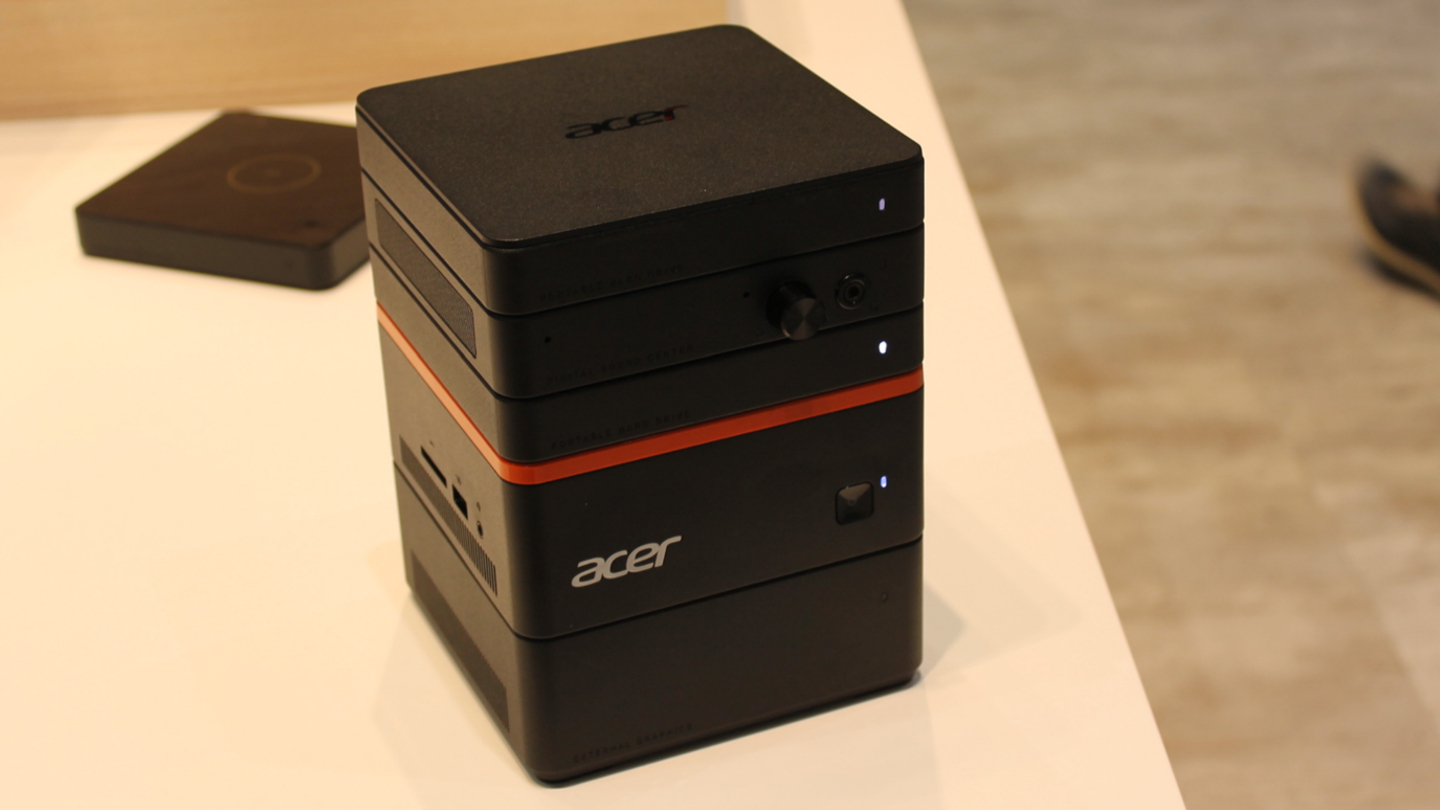
3. Acer Revo Build
Shown off at IFA 2015, the Acer Revo Build aims to make building a PC as easy as clipping together Lego bricks. The NUC-sized modular PC, which houses the CPU in a 1 litre chassis with a 125 x 125mm footprint, can be extended using "blocks" that attach using a magnetic pin design.
By stacking blocks to add functionality such as wireless charging, graphics, audio or a projector, the Revo Build promises to let anyone upgrade their PC without having to fiddle around with a screwdriver.
Stacked together, a fairly well-configured unit is still much smaller than the average-sized desktop PC, making Acer's mini marvel a suitable option for hooking up to a living room TV for use as a media center.
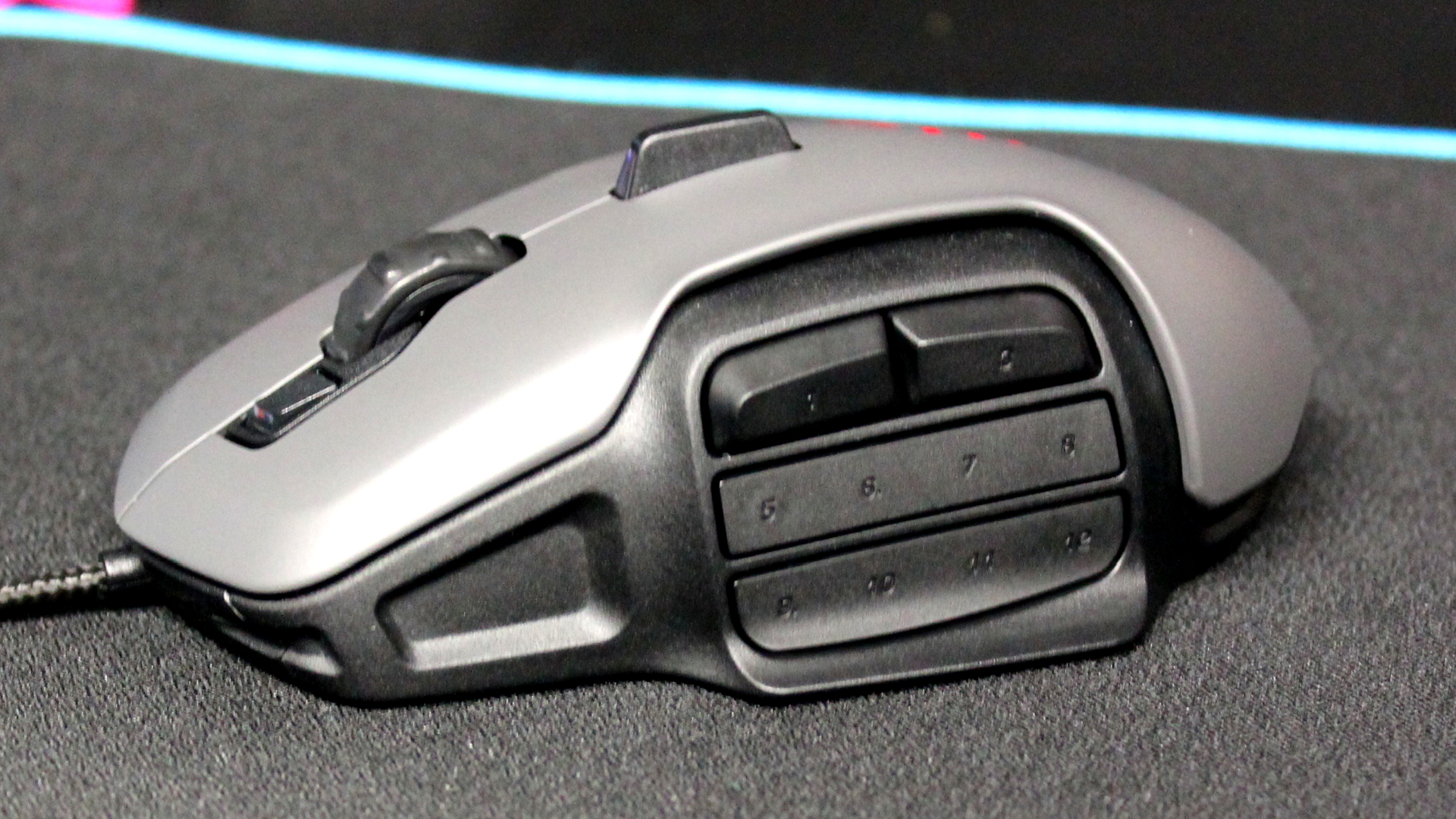
4. Roccat Nyth
Gaming mice are surprisingly customisable considering their titchy size. The best gaming mouse out there for MMOs, Roccat's Nyth took the concept of modular side buttons one step further than most. Its 33-button mouse can be popped out with the press of a button and rearranged in any configuration to suit the game you're playing.
Leaving them in, for example, would let you trigger any number of commands or spells with a thumb press; in a first-person shooter, you might only want two buttons for triggering a melee action or zooming in using iron sights. I'd like to see Roccat go one step further and equip the Nyth's successor with customizable weights to make it the most modular mouse around.
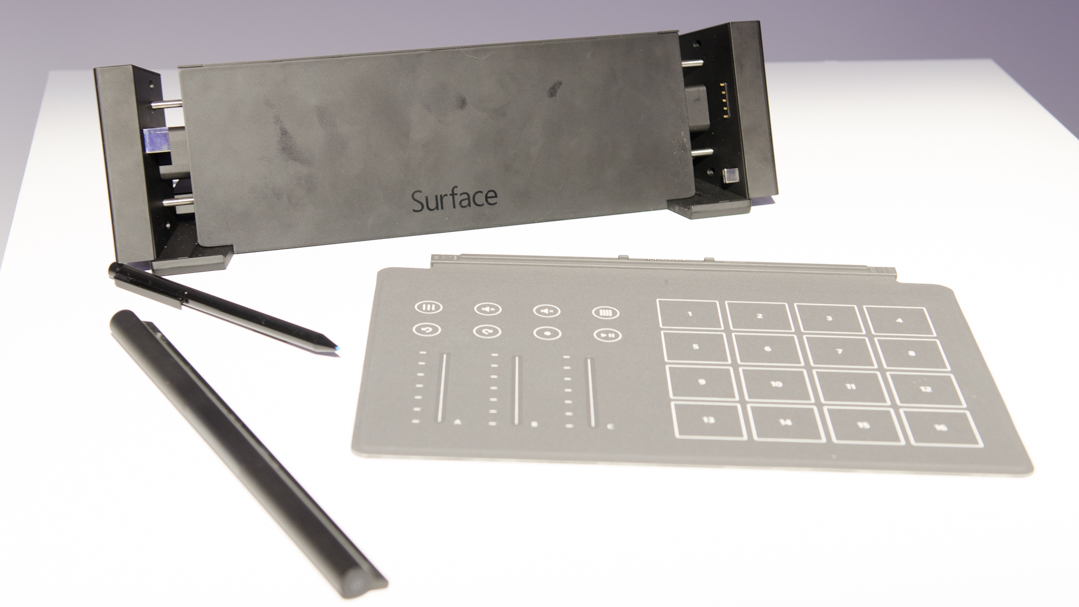
5. Surface Pro 2
Microsoft's idea of clipping on alternate keyboard covers for the Surface Pro 2 was a neat one, but it never took off - most likely because the additional cost wasn't worth the limited functionality. The tablet was offered with a DJ cover with pressure-sensitive buttons including 16 programmable pads for triggering instruments and sounds, in addition to sliders for modifying volume and transitions.
Like Surface keyboard covers, it was super thin, which gave it only a marginally more tactile feel than tapping on the tablet's glass display. The concept of swappable keyboard bases has, ahem, re-surfaced with the Surface Book, so Microsoft hasn't completely abandoned the modular approach.
In fact, according to a patent filed by the company last summer, Microsoft has floated the idea of a modular Surface All-in-One PC that features swappable components including a screen, battery, processor memory, storage, speakers, graphics card and networking components.
